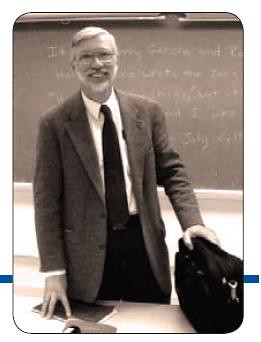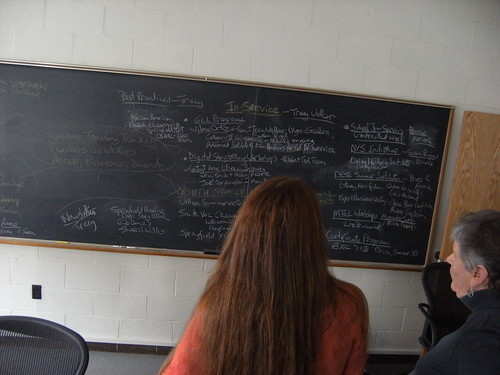
When I first starting teaching and did not know what I was doing in the classroom, I took a course offered by the Western Massachusetts Writing Project and I was so thankful for the support and philosophy around writing that I discovered there that I became completely immersed into the work of the writing project. One of the teachers in that course was Bruce Penniman, who was also the site director of our WMWP site at the time, and I learned a lot about teaching, and leading, from Bruce. Much of it was no explicit (except for the class). Instead, I learned by watching and listening and stealing ideas that had potential for me (Bruce did a whole unit around reading the Bible as literature … I didn’t go there.)
Bruce, a former Massachusetts Teacher of the Year, retired a few years ago, and stepped down from his official duties from the WMWP, but he wrote a book about teaching English in high school and yesterday, I opened up my Council Chr0nicle journal from National Council of Teachers of English, and found a nice profile of Bruce and his teaching strategies in there.
It was through working with Bruce that I began to use the concept of what Bruce calls a “stakes” approach to writing, in which students are working for different audiences and therefore, different stakes. For example, in low stakes writing, they are writing in their notebooks, mostly for themselves. In middle stakes, students are writing something to be shared in our class only. High stakes writing is writing for the Web or a newspaper, or some wider audience. By viewing their writing through these lens, I realized I could put more effort into various phases of writing. In order words, I don’t need to correct everything but I can focus on what work I want to do with my young writers. For me, as a young teacher, this changed everything.
You can view my modified version of Bruce’s Stakes Writing Approach on this Google Doc and also, see the website that I created to map out my writing projects and curriculum over the school year, which reflects this approach (I hope).

Bruce’s book — Building the English Classroom: Foundations, Support and Success — is out now and the website for the book has some PDF samples that you can check out to see if it is right for you.
I’m grateful that I had Bruce in my circle of people I could learn from. Who did you have in your first years that you could look to for help and understanding? Or, um, theft of good teaching practice?
Peace (in the Bruce),
Kevin
 I spent a good part of the day yesterday at a leadership retreat for the
I spent a good part of the day yesterday at a leadership retreat for the 